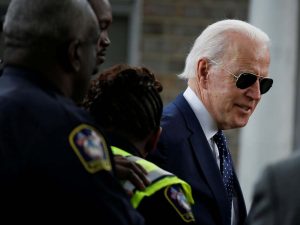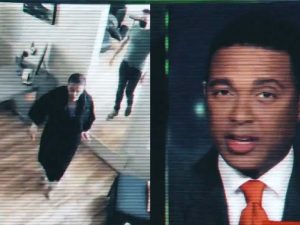Melania Trump said Friday “there are consequences” for writing “false stories” as a reporter appeals a high court ruling over defamatory reporting.
“There are consequences when a person writes false and defamatory stories without fact checking,” the first lady tweeted to her millions of followers Friday, along with a link to an article in the PressGazette UK titled, “Journalist to appeal ruling that Telegraph apology over her Melania Trump reporting was not defamatory.”
There are consequences when a person writes false and defamatory stories without fact checking. https://t.co/O8mRWCA04x
— Melania Trump (@FLOTUS) September 4, 2020
The article stems from a piece published in The Daily Telegraph Saturday magazine in January of last year by Nina Burleigh. Her cover story was called, “The mystery of Melania.” The piece was mainly comprised of material from Burleigh’s book called “Golden Handcuffs: The Secret History of Trump’s Women.” Nina explained that the book was “carefully sourced and fact-checked.”
A week later the outlet reportedly removed the article online. The newspaper issued an apology to Melania saying the piece had “contained a number of false statements which we accept should not have been published” and agreed to pay the first lady “substantial damages,” according to the report.
Burleigh’s attorney, Dr. Jef McAllister, reportedly said that his client “brought this action to clear her name, and the judge has determined that she cannot do so because the Telegraph piece [apologizing] for her work was not technically defamatory of her.”
“We find it hard to understand how the Telegraph could agree to retract a piece written by Ms Burleigh and to pay substantial damages to Mrs Trump as a result without that reflecting badly on Ms Burleigh’s competence as a journalist and author – but that appears to be the court’s reasoning,” he added.
Justice Nicklin disagreed with Nina and ruled that the Telegraph’s issuing of an apology to Melania Trump “neither alleges nor implies any culpable failure” on the part of Burleigh.
“In my judgment, the apology neither alleges nor implies any culpable failure on the part of the claimant [Burleigh]; it does not suggest that there was any want of skill or care on her part,” the justice wrote.
“The corrections of the ‘false statements’ are not of a gravity that suggests a fundamental failure on the part of the claimant, as author of the original article,” he added. “On the contrary, they would strike the hypothetical reader as being trivial or insubstantial. Most importantly, the apology contains no attribution of fault or blame for the errors.”





Write a Reply or Comment
You should or Sign Up account to post comment.